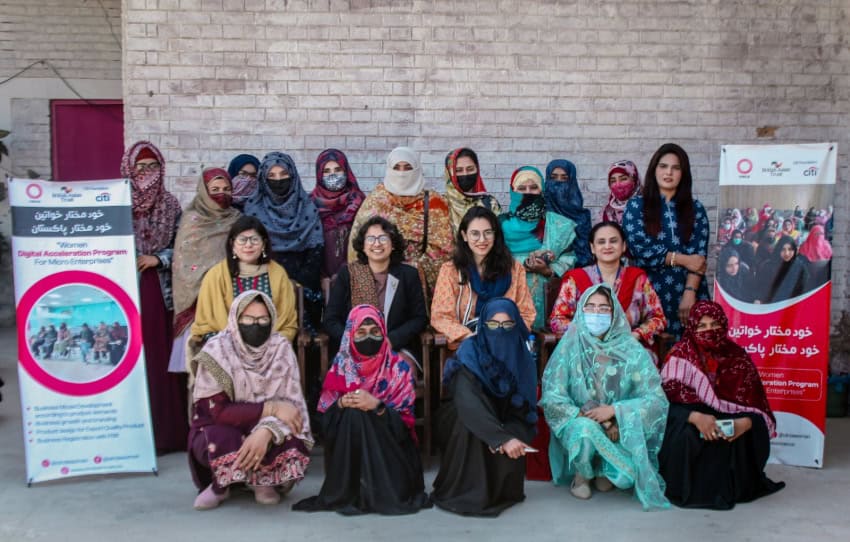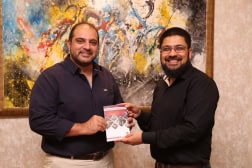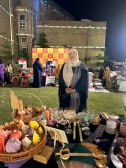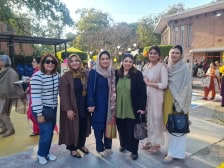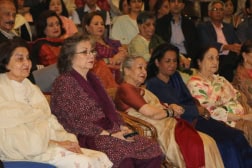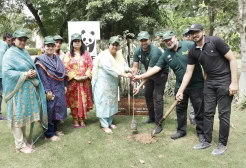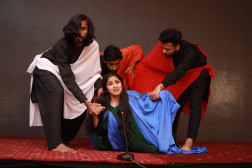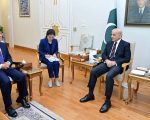LAHORE – A silent revolution is taking place in the neighbourhoods of Sargodha, Khanewal, Multan, and Rajanpur, where women, often overlooked and underestimated, are confidently and determinedly taking up the role of entrepreneurship.
Shumaila Gohar, a 30-year-old entrepreneur from Khanewal, enrolled in the Digital Acceleration Program (DAP) by the Circle Women Association, free of cost. After four years of training, ensuing extensive follow-up and intra-group connections, Shumaila is thriving as a successful businesswoman and has a strong presence across various social media platforms, including Facebook, Instagram, YouTube, and WhatsApp Business.
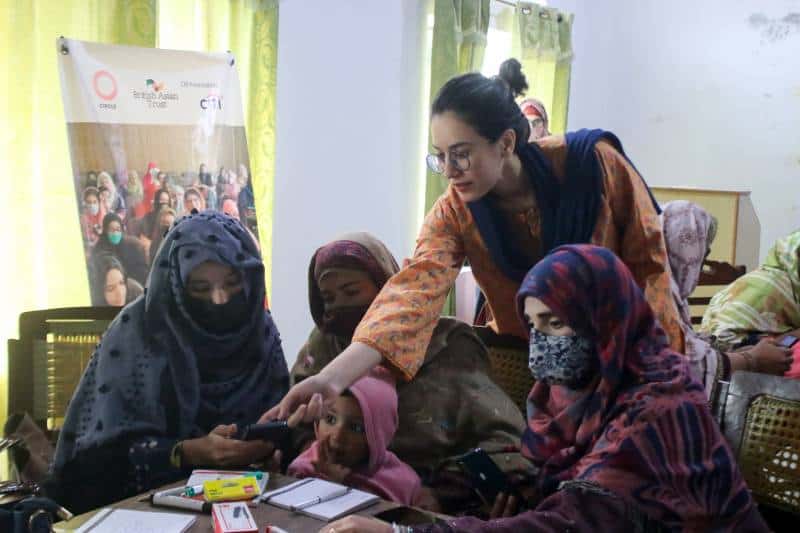
She is not just a businesswoman for her family – she is a symbol of hope.
“People like Shumaila are not just a symbol of hope for their family. They’re hope for women everywhere, proving that with determination and support, anything is possible,” says Sadaffe Abid, Circle Women Association’s head and the soul and architect of DAP.
“With a focus on leveraging IT technology to solve pressing challenges, CIRCLE has become synonymous with innovation and impact,” she says.
She says that DAP is central to CIRCLE’s mission. It was launched in 2022 to equip women with the skills and knowledge necessary to thrive in the digital age.
She explains the project’s history by saying, “It was during the pandemic that I realized there is a significant digital gender divide.”
Since 2022, CIRCLE has graduated an impressive cohort of women entrepreneurs.
In terms of revenue growth, though aiming for a 25% revenue increase in 90% of youth-led enterprises, CIRCLE surpassed expectations, with 61 women achieving this milestone. This represents 169% of the intended goal. DAP created 77 direct jobs, exceeding the target of 25 new full-time or part-time positions. Also, the programme assisted two transgender people.
Moreover, women entrepreneurs demonstrated proactive engagement in business sustainability, with varying levels of revenue reinvestment. While the initial target was for 10 women to reinvest 20% of their revenue, the actual distribution among participants exceeded expectations, showcasing their dedication to business growth.
Looking back, it emerges that in the Multan Cohort, the participants established 14 businesses, ranging from jewellery and IT services to embroidery, clothing, a general store, and various art and craft ventures. Specifically, there were two jewellery businesses, 1 IT business, two embroidery businesses, 4 clothing businesses, one general store, and four art and craft businesses.
The Sargodha Cohort had five businesses: photography services, IT NFTs, arts and crafts, and a fashion blogging venture. Similarly, the Khanewal Cohort had 21 businesses, and the Rajanpur Cohort had 18 firms.
These businesses have effectively benefitted from social media platforms, with all youth-led microenterprises experiencing increased digital engagement post-advanced training. Up to 100% of these enterprises have prepared business catalogues to expand their outreach, while 70% of women have reported enhanced knowledge of internet tools for both business and personal use.
The programme has generated success stories as of Shumaila.
Tahreem Kiran, a 19-year-old from Rajanpur in Punjab, grew up in a financially constrained household. She sought opportunities for self-reliance. Her breakthrough came when she stumbled upon a post on the Circle Women Association’s Facebook page advertising the DAP. She got training in the DAP, gained insights into digital business strategies and now she runs her business, “Meow Adventure.”
Today, Tahreem successfully manages her enterprise, contributing significantly to her family’s income by fulfilling 10-12 orders monthly. Grateful for the life-changing opportunity, Tahreem extends her heartfelt gratitude to the Circle Women Association and the DAP team for their invaluable support and transformative training.
In a nutshell, the digital world has changed these women’s lives.
“In Pakistan, even if women have access to the internet, they often don’t know how to use it or digital tools. Most women in our country primarily use the internet to watch dramas or download recipes. However, in today’s world, a smartphone can be a gateway to knowledge, skills, networks, and economic opportunities.”
She stumbled upon this idea during the pandemic as she interacted with women who had never heard of or used digital platforms.
“We pitched it to UN Women, and they supported us in designing and delivering the program to 60 women as a pilot. We worked with female home-based workers in multiple cities, including Multan, Bahawalpur, Quetta, Lahore, and Karachi. We found that the pandemic disrupted these women’s businesses, but learning digital tools like Facebook Marketplace and WhatsApp for business helped them expand their market reach and receive orders from across the country.”
With support from UN Women and the Aurat Foundation, CIRCLE scaled up the programme in 2022 and worked with 5,000 women nationwide.
“Our biggest project, Two Circles, has reached over 20,000 women through the digital literacy program. I firmly believe that digital literacy is a fundamental human right. If we aim to leverage AI and other technologies in Pakistan, bridging the digital gender divide is crucial.”
Why focus on women?
“Because when a woman learns, she brings knowledge, capacity, and confidence to her family, empowering entire generations. Contrary to the belief that women are not interested in technology, we’ve found them curious and eager learners. For instance, one of the women in our pilot program never missed an online class despite her husband’s illness because she saw the value in learning digital tools and being part of a supportive community.”
As time passes, Sargodha’s Maria will continue expanding her photography work.
The impact of the DAP goes beyond individual success stories. Through networking events, mentorship programmes, and peer-to-peer support, women enrolled in the DAP are not just learning new skills—they are forging lifelong connections and building a support system that will sustain them on their entrepreneurial journeys.
Sadaffe Abid is filled with pride and optimism. “Our vision is to build a tech-enabled future for women in Pakistan,” she says. “And with every success story that emerges from the DAP, we are one step closer to realizing that vision.”

